- Home
- James Phelan
Red Ice Page 9
Red Ice Read online
Page 9
27
GIVERNY
“You live in America?” Zoe asked.
“Don’t hold that against me,” Fox replied.
“Those days have passed,” Zoe looked at Kate for a second, then back to Fox. “We fought in their country to help them achieve independence, they fought here to rid us of Nazis. Let’s call it square.”
Gammaldi laughed.
“Having watched the recent eight years with horror,” she said, “I am of course thrilled about their last election because the potential to go wrong in America is so huge and now, at last, is someone genuinely impressive, someone who can help heal that great wound in American life and so the rest of the world.”
“You think?” Kate asked.
“Yes,” Zoe replied. “And you got yourselves and therefore the rest of us in terrible fiscal trouble, now we all have to work harder to get out of it.”
“Well,” Kate said, “I guess that’s the disadvantage of being the world’s leading economy.”
“I am a believer that this is still an American world, that you will still hold the mantle, as it were,” Zoe said. “You are down, but you’re not done yet. It will take time and sacrifice, but you handle both well; yours is such a young country.”
“And France is going where, politically?” Kate asked, one eyebrow arched. “Western Europe seems little more than an open-air museum to me. Nothing wrong with that, but it’s all about the past, there’s no direction for a future; certainly nothing like where you’ve come from a couple of hundred years ago.”
“You’re probably right,” Zoe said, looking at her mobile-phone screen. “When our president was elected in 2007 on a right-wing, pro-American platform of la rupture, he promised to break many of the traditions and laws of a calcified Fifth Republic.”
“Expectations ran high,” Fox said.
“True. He appointed a diverse cabinet, including socialists, a number of chic women, and members of minorities…” Zoe went back to her closed, guarded self. Then looked to Kate. “But, you know, it is interesting that you say this is a museum. Perhaps in a couple of hundred years your nation will have a similar history—a playground for tourists marvelling at what once was.”
The women traded a look and Fox tried to end this conversation.
“It seems to me,” he said, “that America is a wild place, an awesome place and, like Henry James, I very much believe it to be a world in itself rather than a country. As a place it is very difficult to generalise.”
“Hmm, listen to us, fixing the world around this table,” Zoe said. She sipped her coffee and sat more upright, looking directly at Fox. “Tell me about Renard.”
He knew what she meant: Could Renard have killed the Russian Ambassador and his wife?
“Renard’s not that sort of guy.”
“Not what sort?”
“Not a murderer.”
“How long have you known him?” She lit a new cigarette and waved the smoke away.
“Not long,” Fox admitted. “We met in ’09, covering the Summit, then we did some work on the Clearstream scandal together. He’s done freelance work for our organisation, GSR, for over seven years, almost two decades at Le Figaro—”
“Yes. Where’s his wife?”
“Dijon, I think,” Fox said. It was true.
“Yeah, I remember,” Gammaldi said, “because of the mustard. She took the kids to visit their grandparents.”
Fox shifted in his seat.
Zoe took a folded piece of paper from an inside pocket of her coat. Passed it to him.
“Call log from Renard’s phone,” she said. “The day he called you.”
Fox scanned it, a list of numbers. Two stood out—his GSR office number, and then a mobile number that was repeated several times. Those calls were made about twenty minutes before the one to him, and once again a few minutes afterwards. Duration was always less than a minute.
“I have seen the transcripts of the calls,” Zoe said. “He was talking with Katya.”
The wheels of Fox’s mind were turning. The call sheet didn’t match his version of events. Katya had first contacted him, then he’d called Renard to bring him in on this. It was on the same day. That call to his office had been transferred to his iPhone—he had been in Connecticut at the time. He’d then spoken to Renard and asked him to assist on this story as his local specialist, his fixer. But now what Zoe was saying, and what this call sheet seemed to prove, was that Renard knew about Katya first.
“Katya contacted him, and then—what, he told her to contact me … and then played dumb when I called him?”
Zoe shrugged.
This made no sense … Gammaldi and Kate looked at each other and back to Fox, sharing in his concern, but they were even more in the dark than he was.
“You’ve read the transcript of this conversation I had with Renard?”
“Yes,” Zoe said. “He was—how did you say this … Playing dumb?”
“He organised to have me come here?”
“That is a possibility,” she said. “We will know soon enough—I have agents watching him.”
“In Dijon?” Gammaldi asked.
“No,” Zoe said. “He is in Paris, still at his office.”
Fox couldn’t put it all together. Why would Renard invite him out here to the Normandy countryside then go off and work behind his back? Could he have killed Katya?
“You need to realise he was using you.”
“Why don’t we just call Renard and clear this up?” Gammaldi offered.
“Because, my food-loving Australian friend,” Zoe smiled and picked up a fig with some cheese on it, “that’s not how police work goes. Let me tell you what we are going to do.”
Before she could say more, her phone rang again. She looked at the screen, as if weighing up whether to answer or not, then stood and took the call. She headed out the front door for privacy.
Gammaldi shrugged and pulled the cork from a bottle of red.
“What?” he said, pouring himself a glass. “It’s like midnight tomorrow back in Australia.”
Fox went to the kitchen to get his iPhone.
He’d heard it bleeping and as he picked it up realised it was Kate’s … She’d been on it a lot these past few months—friends back in the Netherlands, he supposed, and her estranged parents back in Manhattan who were making up for lost time and misplaced grief. She had a missed call, overseas area code … China?
Kate came into the kitchen. She wrapped her arms around his waist and hugged his back. He put the phone down. He turned—could tell she saw frustration and fear in him—and leaned in to kiss her.
“You slept well last night,” she said, running a hand through his short mess of hair. Her own hair had gone back to its natural auburn and she had put it up in a short ponytail. Dark eyes, a couple of years younger than Fox. When he’d first met her she’d reminded him of actress Eva Green, but she looked different now: freckles peeked through her tan, she wore no make-up except some eyeliner and lip gloss … He thought about that first meeting in St Petersburg. Their train ride from Russia to Lithuania. It had been dark then, when they’d first kissed and come together. “Don’t leave me alone again,” she’d said, moving towards Fox, wrapping her arms around him. She put her head hard against his chest and held him tight, as if he might disappear …
“I won’t,” he’d assured her. It was so easy to lose time with her.
“Here I was thinking maybe we could go for a drive today,” she said. “Just me and you, take a late lunch somewhere; Rouen, maybe? Drink wine and watch the sunset, make love on the bank of a river and sleep in the summer night … Guess that’s gone to shit.”
Fox looked at the wall. Felt Kate’s heart beating against his chest. Her phone bleeped again—it was buried among the produce on the bench. He put a hand to her face, guided her lips up to his and kissed her. He wanted to stay with her and lay in the shade of a tree out back, list
en to music and never move or change a thing. He remembered a night he’d spent with her on a house boat on the East River, looking back at Manhattan, when he’d woken from a nightmare and she’d comforted him, saved him from thoughts that had chased him for years. He knew she could read all that now, in his eyes—that and so much more.
“You don’t always have to be the one to make everything right,” she whispered to him.
“I know.”
“I don’t want you to investigate anything, I mean. Let it go—”
“It’s not that simple,” Fox said. A small lie, and the dots weren’t connected yet so it was almost the truth. It was simple, sure. Leave it be. Walk away. But he’d never been able to do that. He wanted the running and hiding to stop as much as she did. He had to work to make that happen.
Hard work.
“Look,” he said, “I’ll go with Zoe to Paris, suss out Renard, get all this cleared up, and then we’ll just chill, yeah? No more reporting work, I’ll leave it be. Stay in the middle of nowhere until the money runs out, then I’ll get a job.”
“A farm job…”
“Ha! Sure, a farm job.”
“Do you really think you could do that? Walk away from this life?”
“I’d sure like to try.” He looked pleadingly into her eyes, hoping for understanding.
“But there’s just this one last job…”
“Yeah,” he said, moving to the sink.
Kate smiled, rested against him. “Okay.”
He smiled back. Upbeat. But it was an act. She may have seen through it, but really she didn’t know the half of it. His eyes were everywhere. Scanning. Sightlines. The directions of the birds outside. Listening. The sounds coming in the open back door and kitchen windows. Brujon ran out from the side courtyard and stood by the car; the dog’s posture alert, listening. He turned towards the driveway, still, ears pricked, then sped off to bark at some visitor out of sight.
This was it. That last job. It was happening now. This was the end.
28
HIGH OVER EUROPE
“We had to put an end to him,” Lavrov said, as Babich chewed a thick slice of Italian sausage on black bread. “Our ambassador in Paris? He was selling you out.”
“What?” Babich responded. This was news. He’d owned that man for over a decade. Still, owning something meant it had a price. Anything with a price was for sale. It was a game he’d never really lost, adhering to Pablo Escobar’s silver or lead—‘take the money or face the bullets’—school of thought.
“He made a deal with Moscow—”
“When?”
“After you were taken in.”
“How long after?”
“Three months.”
“When the papers said I was going to trial?”
“Likely, yes.”
“At least he waited. How did you deal with him?”
“With finality. Paris police are sifting through dust, they’ll be chasing ghosts for months.”
Babich nodded. He watched as Lavrov’s men played cards in the aft section of the cabin. Nothing to worry about, the ability to switch off like that, switch on when called upon, a simple existence. He’d never felt like that.
“He only knew of the diary?” Babich asked, dipping the crust of his bread in some vodka. It had been a long time since he’d had such a decent meal. The closest he’d had to this in the United States was a hot-dog and a non-alcoholic beer while in detention in one of the FBI’s cramped windowless prisons. So short-sighted, those law-men. So reactionary.
“The diary, and an idea of what it led to, that was all.”
“So he thought he’d go out and get a better offer from our so-called government…” Babich ate some more sausage. Looked out the window at the bright day. Probably nearing Turkey now. No, they’d probably fly over Syria, the Caspian, Iran, then skirt around Pakistan. Lavrov’s pilots would know the safest route outside American spheres of military influence.
“He was a foolish traitor.” A simple statement. The way Lavrov said it and the way he shook his head made Babich think he would have liked to have ended the ambasssador with his own hands.
Babich shook his head. “No. He respected money more than anything. Simple as that.”
“His wife was leaving him, too,” Lavrov said. “Either way, the whereabouts of the secret protocol was going to go direct to Moscow, or to the Americans via the wife. We had to move as we did.”
“You did well.”
Lavrov smiled. Babich asked him, “Where are they now?”
“Who?”
“Not who. The diary and—” Babich stopped himself. He could see the answer written on his man’s face.
Lavrov stammered. He said, “They are—we’ll get them.”
Babich’s grip on his glass tightened. “You don’t have them?”
“We had to move.”
“And where, my dear friend…” Babich began, leaning in close, “where is the document, this secret protocol?”
Lavrov looked uneasy.
“We are gaining possession of the diary at any moment—”
Babich clenched his fists.
“There was no choice!” Lavrov said.
“You couldn’t get what we needed at the same time?”
“It—it was our only choice given the time frame,” Lavrov reasoned.
Babich put his drink down on the floor. The cabin was sparse, decked out for paramilitary operatives. Lavrov had five men on board, one shot through the hand, but resting it.
“If people look closely into their business,” Babich said, “they might then find out about our business, see?”
“By then—it will be too late—we will have made our move.” Lavrov could see his boss was not impressed. “We have just hours, not days, to see our success, comrade. Hours…”
Babich reminded himself of all Lavrov had done. He was no fool, to be fair, and he wouldn’t have acted on a whim. His hand had been forced. Okay, sure; it was forced and he acted, but to come away empty-handed? And they had only hours to go. Hours!
“Where is it?”
“Paris.”
They knew it was in Paris? Big place, small document, hidden by a Russian diplomat over a century ago. Until Babich saw it with his own eyes, he did not know anything. He winced and felt at his heart.
“And the timing … Hours to go,” Babich said. “You are killing me, Mikhail, killing me.”
He closed his eyes and let himself smile. He was a free man and he would soon be the leader of his country. Why not believe optimistically like his friend here? Was it a weakness to be so? Was it being ignorant to the realities?
“It will all work out,” Lavrov said. “It was perfect having you moved to Italy and tried there first.”
“You orchestrated that?”
“It was nothing,” Lavrov said. “Money in the right hands…” Babich laughed. Why bother infiltrating the Americans to get info on his movements when the Italian security and judicial services were so easily bought? He could imagine the elaborate moves taken to confuse anyone trying to second-guess his flight plan from the US. If you wanted the right people to like you in Italy, you just had to spend a little money and they would quickly value your qualities. They knew it came from a dubious place, sure, but they were used to that. It was so simple. A painless place to operate. Money trumped all, you could buy anything. He missed the place.
“I do have one good piece of news,” Lavrov said. “That bastard reporter, who helped put you—”
“Lachlan Fox?” Babich picked up his glass from the floor, tore off another piece of bread.
Lavrov nodded. “He will be dead soon.”
Babich stopped. Put down his food and drink. Wiped his hands on a napkin.
“Roman?”
Babich looked up into his eyes. He imagined the look was enough, but he’d explain it all the same: “Mikhail, I wanted Lachlan Fox to be there—at the end�
�to help us with this,” Babich said. “I expected it. I have thought about it for months…”
Lavrov’s face was flushed. His neck bore splotches of purple and crimson, his cheeks were ruddy and his capillaries flared. Good. Feel it. Even the best men are fools.
“Contact your people,” Babich said, his tone leaving no doubt. “Call them off.”
Lavrov looked him in the eyes, shook his head.
Babich’s appetite was gone. There at the end, that’s where he wanted Fox, there at the end.
“It’s too late to call them off,” Lavrov explained. “It’s order and forget, and these guys never fail. Fox will be dead in moments, if he’s not already.”
29
WASHINGTON, DC
“Come on, answer already…” McCorkell said. He couldn’t shake Lachlan Fox from his mind. He could already be dead. Or captive. He pressed redial and watched the image on the big screen tracking the SAR crews to Hutchinson’s last known position. Tapped his fingers on the desk. “Come on…”
Fox’s mobile phone rang through to voicemail again so he tried a New York number. It was answered on the third ring.
“Yeah?” Despite the hour the voice on the phone sounded wide awake.
“Tas, it’s Bill,” McCorkell said to his old college friend and Fox’s boss, Tas Wallace.
“Do you know where Fox is? I can’t reach him on his cell.”
“He’s on leave, has been since the last Babich stories,” Wallace said. His voice changed—his concern for his reporting staff was paternal, especially so for his never-say-die duo, Fox and Gammaldi. “What’s up?”
“I can’t really say, but I think you’ll get the gist,” McCorkell said. “We had an incident moving our prisoner.”
“He’s out?”
“Yep.”
“Jesus…”
“Tell me about it. I think Fox might be in danger, maybe not, but as no one seems to know where he’s got to…”
“France,” Wallace said. “Or so he told me. A farmhouse in the middle of nowhere. With Kate and Al. That’s all I know.”

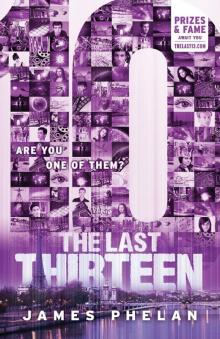 10
10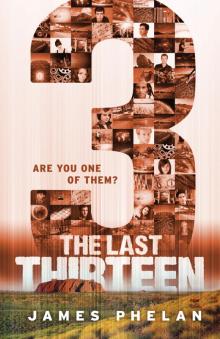 3
3 Survivor
Survivor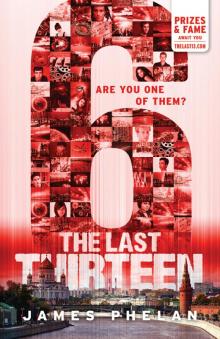 6
6 The Hunted
The Hunted Quarantine
Quarantine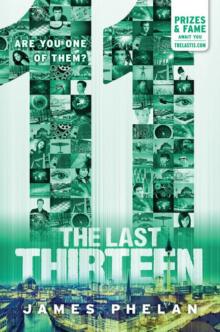 11
11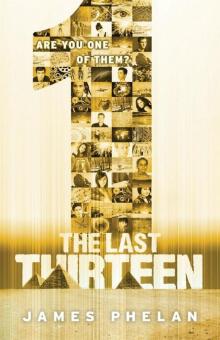 The Last Thirteen - 1
The Last Thirteen - 1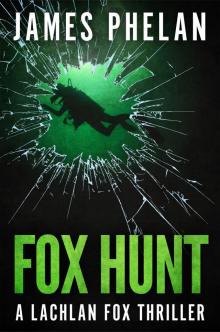 Fox Hunt
Fox Hunt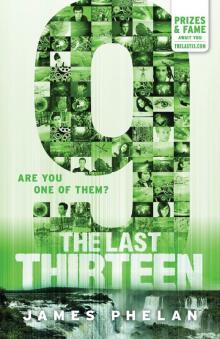 9
9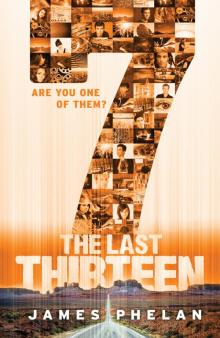 7
7 Patriot Act
Patriot Act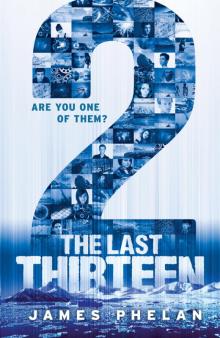 2
2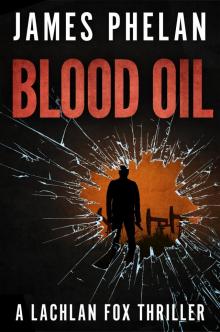 Blood Oil
Blood Oil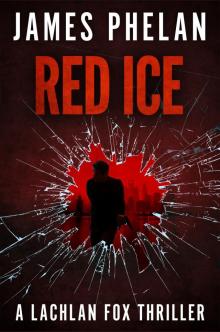 Red Ice
Red Ice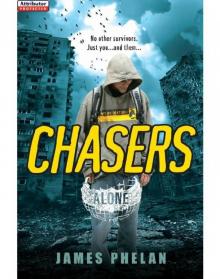 Chasers
Chasers Liquid Gold
Liquid Gold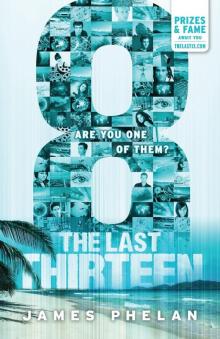 8
8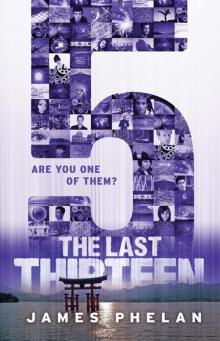 5
5 The Spy
The Spy Kill Switch
Kill Switch Dark Heart
Dark Heart